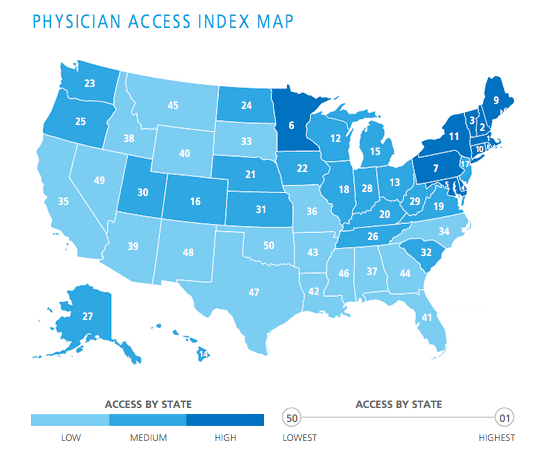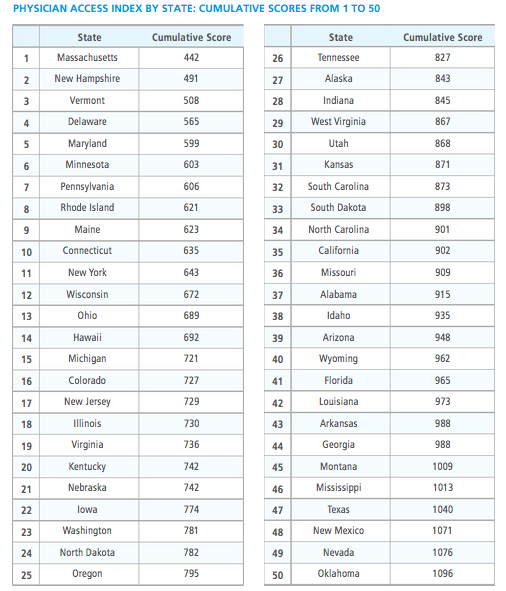Best, Worst States for Patient Access to Practitioners
Patients in the Northeast likely have the best access to physicians, nurse practitioners, and physician assistants, while those in the South and Southwest may have a harder time seeing a practitioner.
Patients in the Northeast likely have the best access to physicians, nurse practitioners (NPs), and physician assistants (PAs), while those in the South and Southwest may have a harder time seeing a practitioner.
“When it comes to accessing physicians, not all places or all patients are equal,” stated Mark Smith, president of physician search firm Merritt Hawkins that published these state rankings. “As the health care system evolves, there will be clear access ‘haves’ and access ‘have-nots,’ and the rankings reflects these imbalances.”
According to the firm’sPhysician Access Index, Massachusetts, New Hampshire, Vermont, Delaware, and Maryland have the most positive physician access variables, while Mississippi, Texas, New Mexico, Nevada, and Oklahoma have the fewest.
In addition, large states with disparate populations such as California, Florida, and Texas tend to have fewer favorable metrics, while smaller states tend to have the most.

These rankings were based on 33 benchmarks and metrics that influence patient care access, including the number of nurse practitioners (NPs) and physician assistants (PAs) per 100,000 population. Merritt Hawkins considered a high number of NPs and PAs per capita to likely increase access to medical services.
“Advanced practice professionals such as nurse practitioners are supplementing the physician workforce by performing some of the tasks and treatments that physicians perform…(and) physician assistants also are increasing overall clinician resources by performing some of the tasks and treatments physicians perform,” the report stated.
In addition, full practice autonomy for NPs was considered a positive care access metric in thePhysician Access Index. Currently, 21 states offer NPs full practice autonomy, while 17 states offer somewhat limited practice autonomy to NPs, and the remaining 12 states offer very limited practice autonomy to NPs, Merritt Hawkins reported.

